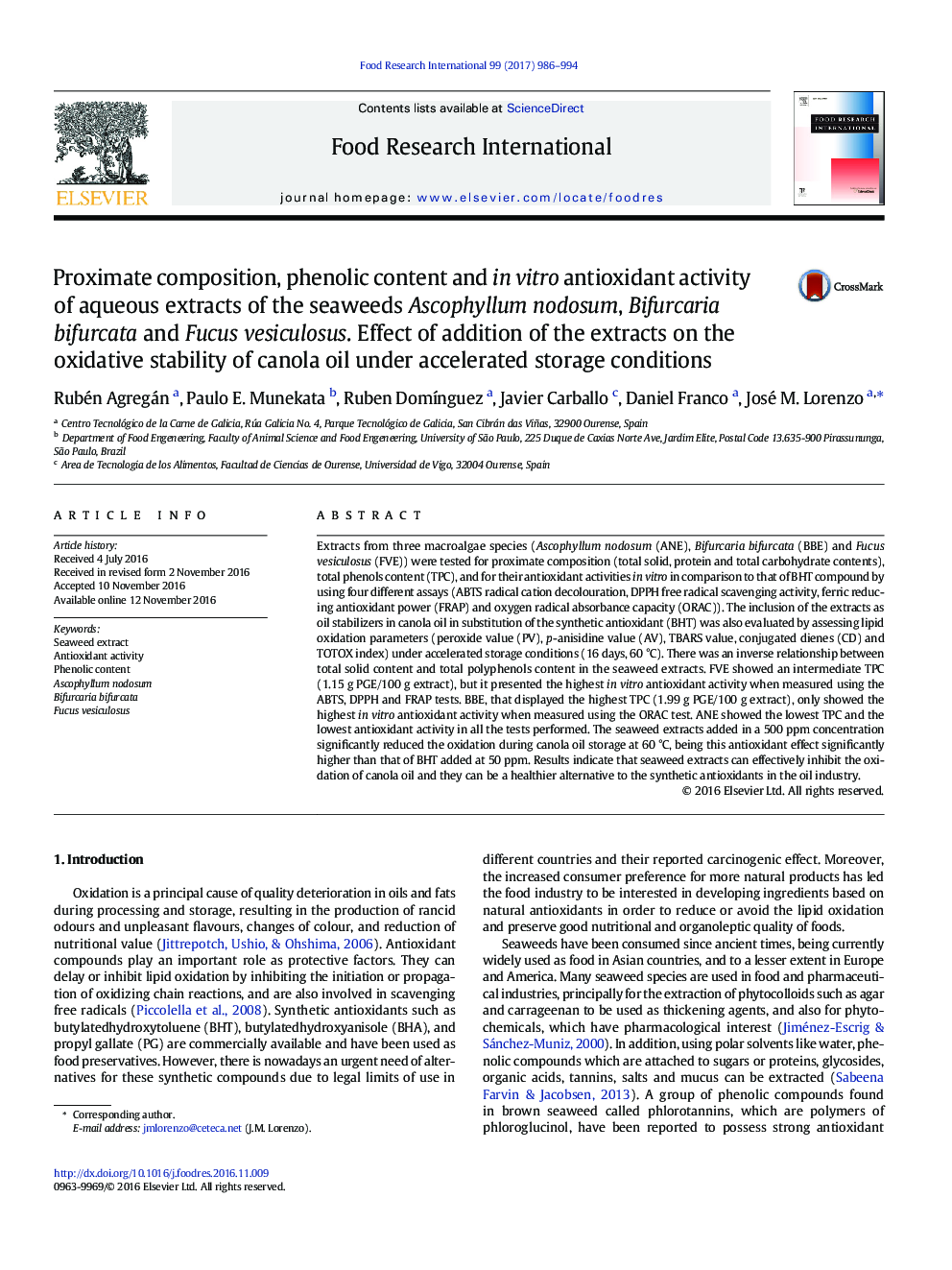| Article ID | Journal | Published Year | Pages | File Type |
|---|---|---|---|---|
| 5768054 | Food Research International | 2017 | 9 Pages |
â¢Extracts from three seaweeds were analyzed for composition and polyphenol contents.â¢Antioxidant activity of the extracts was assessed in vitro by four different methods.â¢Effect of seaweed extracts on the oxidative stability of canola oil was studied.â¢Antioxidant activity of seaweed extracts was compared to that of BHT.â¢Results indicate that seaweed extracts effectively inhibit oxidation of canola oil.
Extracts from three macroalgae species (Ascophyllum nodosum (ANE), Bifurcaria bifurcata (BBE) and Fucus vesiculosus (FVE)) were tested for proximate composition (total solid, protein and total carbohydrate contents), total phenols content (TPC), and for their antioxidant activities in vitro in comparison to that of BHT compound by using four different assays (ABTS radical cation decolouration, DPPH free radical scavenging activity, ferric reducing antioxidant power (FRAP) and oxygen radical absorbance capacity (ORAC)). The inclusion of the extracts as oil stabilizers in canola oil in substitution of the synthetic antioxidant (BHT) was also evaluated by assessing lipid oxidation parameters (peroxide value (PV), p-anisidine value (AV), TBARS value, conjugated dienes (CD) and TOTOX index) under accelerated storage conditions (16 days, 60 °C). There was an inverse relationship between total solid content and total polyphenols content in the seaweed extracts. FVE showed an intermediate TPC (1.15 g PGE/100 g extract), but it presented the highest in vitro antioxidant activity when measured using the ABTS, DPPH and FRAP tests. BBE, that displayed the highest TPC (1.99 g PGE/100 g extract), only showed the highest in vitro antioxidant activity when measured using the ORAC test. ANE showed the lowest TPC and the lowest antioxidant activity in all the tests performed. The seaweed extracts added in a 500 ppm concentration significantly reduced the oxidation during canola oil storage at 60 °C, being this antioxidant effect significantly higher than that of BHT added at 50 ppm. Results indicate that seaweed extracts can effectively inhibit the oxidation of canola oil and they can be a healthier alternative to the synthetic antioxidants in the oil industry.
Graphical abstractDownload high-res image (165KB)Download full-size image
